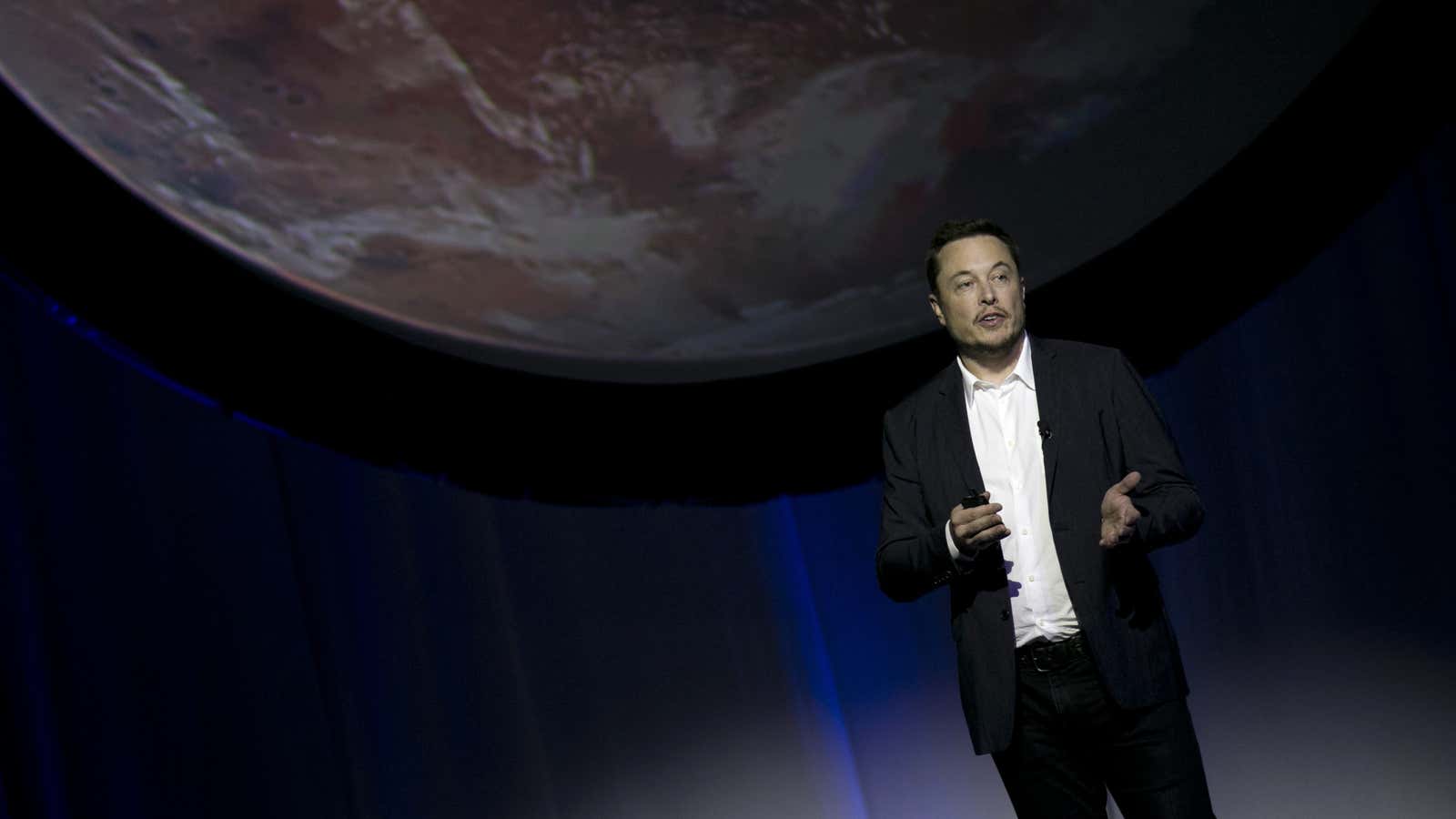In laying out his insanely ambitious plan to colonize Mars, SpaceX’s CEO Elon Musk joins a long line of businessmen who dream of building new societies to help humanity perfect itself.
Musk, in a presentation Sept. 27, called for a permanent colony within 40 to 100 years, with millions of immigrants paying $200,000 for the voyage (return trips for the dissatisfied would be free, he said). His proposal is driven by Musk’s lofty hopes for mankind’s future: In order to protect our species from “an inevitable extinction event” we must become “a spacefaring civilization, and a multi-planetary species.”
History is filled with tycoons with Utopian visions. They include chocolatier Milton Hershey, who designed and built Hershey, Pennsylvania, to provide his factory workers with modern homes and the stability he lacked as a child, and Henry Ford, who exported his concept of American pastoral life to Fordlandia, a town he constructed in the Brazilian Amazon for field hands on his rubber plantation. Railroad mogul George Pullman developed a town outside Chicago and named it for himself, while Lowell, Massachusetts, an early mill town, was founded by Francis Cabot Lowell in response to the miserable living conditions he saw in UK industrial cities like Manchester.
More recently, the Walt Disney Company created Celebration, a master-planned community that injected Disney’s version of small-town America into the swamps of central Florida.
Some of these ventures, like Fordlandia, failed, while others, like Hershey, are still thriving. But they shared their founders’ paternalistic belief that they could organize communities better than ordinary citizens left to their own devices.
Often, their vision meant forcing their own ideas and personal quirks onto town residents. Pullman, a prohibitionist, banned alcohol from his town, and black residents were excluded, despite the thousands of African Americans who worked as porters on Pullman sleeping cars. Ford built houses in the jungle with metal roofs, instead of the traditional thatch used in that climate, and the homes became unbearably hot. They “seemed designed by Detroit architects who probably couldn’t envision a land without snow,” according to Gary Grandin’s book, Fordlandia: The Rise and Fall of Henry Ford’s Forgotten Jungle City. When Ford’s Brazilian employees grew tired of his insistence on serving American meals in the cafeteria, they rioted.
Because these societies were mostly populated by company employees, their founders also controlled wages. Not surprisingly, their self-identity as benevolent pater familias clashed with their workers’ desire to collectively bargain for better pay. There were violent strikes in Pullman and Hershey.
Musk, understandably, spent most of his presentation talking about how he’ll get colonists to Mars, and not what they’ll do when they get there. So we don’t know much about who will own his colony, how people will live and its system of government, although Musk has said he favors “direct democracy,” with decisions made by referendum, and laws that expire after a fixed period. Hopefully it will have a stable rule; science fiction is replete with examples of planetary revolts.
One thing we do know is that unlike Ford, who never visited his Brazilian town, Musk won’t be a stranger. Following the example of Hershey, Musk, who is now 45 years old, said he hopes to retire to his colony.




